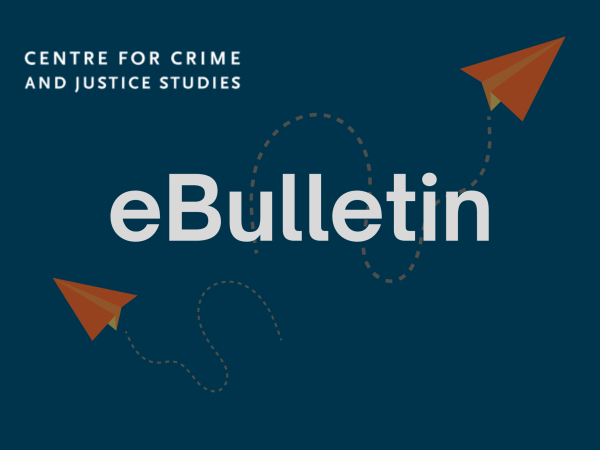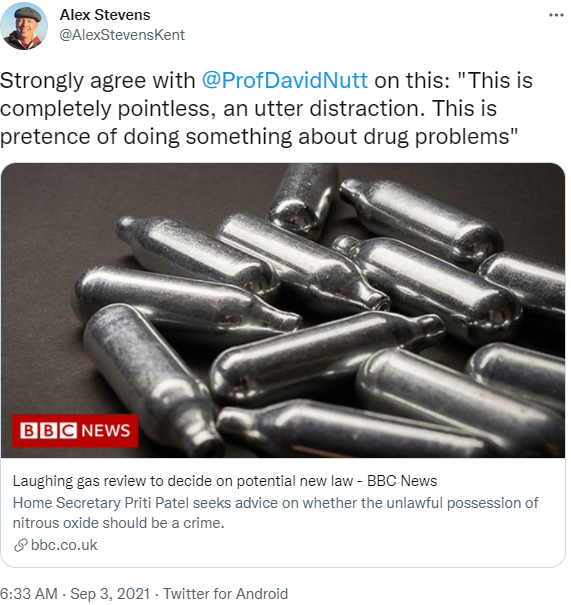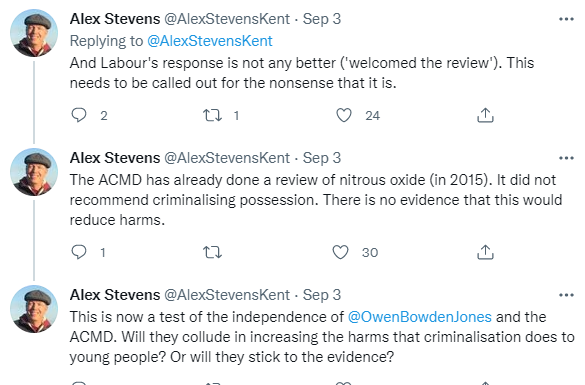
Our latest e-Bulletin, sent out on 10 September, 2021.
Yesterday we hosted a webinar to discuss the problem of deplatforming, or 'cancel culture' as it's sometimes called.
Professor Rosa Freedman of the University of Reading and Professor Jo Phoenix of The Open University talked about their experience of deplatforming at the University of Essex in the months leading up to the first COVID lockdown. The problems of deplatforming are, however, wider than these particular events, and extend also beyond universities.
The Centre for Crime and Justice Studies has itself been targeted for deplatforming, though this is hardly a good enough reason in itself for us to have hosted yesterday's webinar.
As a charity engaged in public education, we recognise the foundational role of improved knowledge and understanding in enabling effective action for meaningful change.
Deplatforming has a corrosive effect on knowledge production and improved understanding. Indeed, it is only by engaging with wide range of ideas and research, including those that run counter to one's own beliefs and values, that improved knowledge and understanding becomes possible.
We'll be publishing a recording of the webinar on our YouTube channel next week.
Save the date
We are working with Woman's Place UK on an event on women's imprisonment, in central London on the evening of Wednesday, 27 October. We have some excellent speakers lined up and are expecting a big turnout.
So save the date in your diaries. Further details will follow in the next bulletin.

Richard Garside
Director
Events
Don't forget that our first 'Lunch with...' is fast approaching, featuring Frances Crook in conversation with Richard Garside on 29 September.
Book tickets for the first episode and check out our guests for the rest of 2021 here.
We also recently announced another series starting in October, 'Last month in criminal justice'. These webinars will feature a mix of guest speakers and our own staff reviewing recent events in criminal justice. The first episode is on 6 October featuring Gemma Buckland in conversation with Richard Garside and Matt Ford. Book your place here.
Latest news
The latest edition of Prison Service Journal offers a range of articles on different topics affecting prisoners and prison staff. Read Issue 256 here.
This month, Mike Guilfoyle recounts a rather unpromising encounter with Mr. Harris whose regular appearances in the dock were often greeted with judicial exasperation.
An eye on criminal justice
In our last e-Bulletin, we mentioned the current renewed nonpartisan interest in the decriminalisation of drug use and emphasis on drug use as a public health, rather than criminal justice issue. Has the Home Office been listening? Last week, Home Secretary Priti Patel announced a review into the use of nitrous oxide (laughing gas) and pledged to 'take tough action'. Experts Professor Alex Stevens and Professor David Nutt, both of whom spoke at our event on drugs and criminalisation in 2019, remain critical. Professor Nutt likened the potential moves to criminalise nitrous oxide to a 'gimmick' and 'distraction' with the outcome of driving illicit drug flows. Professor Alex Stevens said the following on Twitter:

This week, Inquest published a serious challenge to the Government's claims of progress on deaths in custody. What would meaningful progress look like? Most likely, a decline in the number of deaths in custody. Yet, as Inquest points out, the number has remained at around the same level over the last decade. The number of deaths in custody, according to Inquest, are actually higher than the official figures given by the state due to the way deaths are categorised. Read the full article here.
The pandemic is ending and yet, according to Inside Time, certain measures implemented during lockdown in prisons are continuing. Over 15,000 prisoners are still being held two to a cell designed for one as a way of quarantining prisoners with COVID-19 symptoms, despite expert advice from Public Health England advising otherwise. During the pandemic, here at the Centre, we had advocated for the early release of certain prisoners and indeed an early release scheme was announced. As Inside Time points out, the population did fall slightly, and yet the article highlights that the fall didn't prevent the cell-sharing measure. Read more about crowding and the legacy of pandemic measures in prisons here.
Project Update
This week, Roger Grimshaw wrote about the 'stain' of Imprisonment for Public Protection (IPP). The sentence was abolished in 2012 and yet those previously sentenced to IPP were left subject to its strictures. The unreleased population of IPP prisoners in September 2020 stood at the remarkable figure of 1,895. The irony of abolition consists in the fact that, despite being the acknowledged victims of a failed system, their releases continued to be long delayed and many, having fallen foul of the strict demands of supervision on licence, have been recalled to prison. So, what now, asks Roger? Can you help us focus on ways of collating evidence that will take the true measure of IPP's impacts, and instigate a strategic process towards decisive change? If you are a researcher, practitioner and/or a person affected by IPP, read Roger's article on the issue and find out how to work with us on this issue.
Can you help us build this movement by making a donation?
Over the last year, we've received hundreds of donations to help us in our mission to work together to promote knowledge, challenge injustices and create change. We'd like to say a huge thank you to those of you who donated any amount. Our average donation over the last year was £23.00. If you can pitch in to help us continue, please do.

